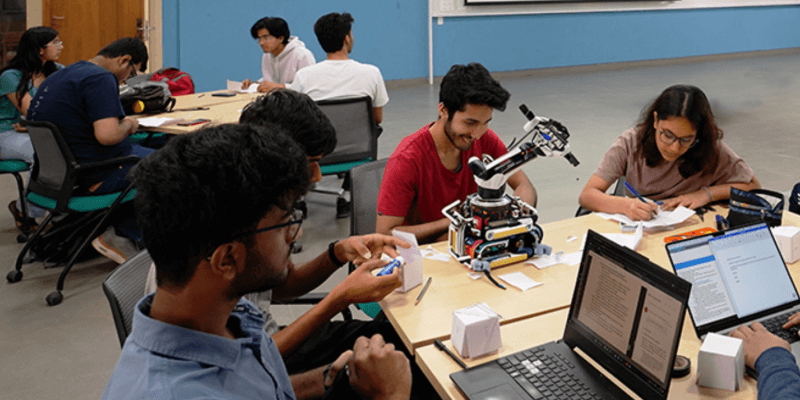
Computational thinking is an approach which enables people to break down complex problems into smaller parts. They then identify patterns within the data to develop algorithms which implement solutions via digital devices, transforming every aspect of human life.
It has shaped the way we communicate through tools such as email, messaging apps and social media platforms, and enhanced the speed and scale at which we access information and services.
Mobile payments, which completely altered the landscape of commerce in India, are a distinct example of the impact that computational thinking can yield in a society. Furthermore, with the emergence of newer technologies such as Artificial Intelligence and Quantum Computing, the scope of computational problem solving is only going to expand.
Plaksha University offers Fundamentals of Computational Thinking as a Freshmore Semester 1 course to introduce students to the fundamentals of programming, and how to use it as a tool for problem solving with real-world implications.
Examples of Computational Thinking:
The course borrows concrete examples from the real world to illustrate how programming can be used for solving problems. For instance, finding the most efficient method to traverse a network of locations and interconnecting roads is an instance that can be tackled by computational thinking. The course, through such real-world problem statements, brings to light the relevance of computational thinking and programming in the contemporary age.
Python is leveraged as the language to teach programming to students, as it is a suitable starting point to develop computational thinking skills.
Plaksha believes that with the growing relevance and proliferation of computing systems in modern-day society, this course would provide a very critical foundation for more advanced majors in Computer Science as well as other engineering disciplines.
By Dr. Deepan Muthirayan, Assistant Professor at Plaksha University. His area of expertise lies in computer science and artificial intelligence.
Co-edited by Bhaskar Choudhary.



